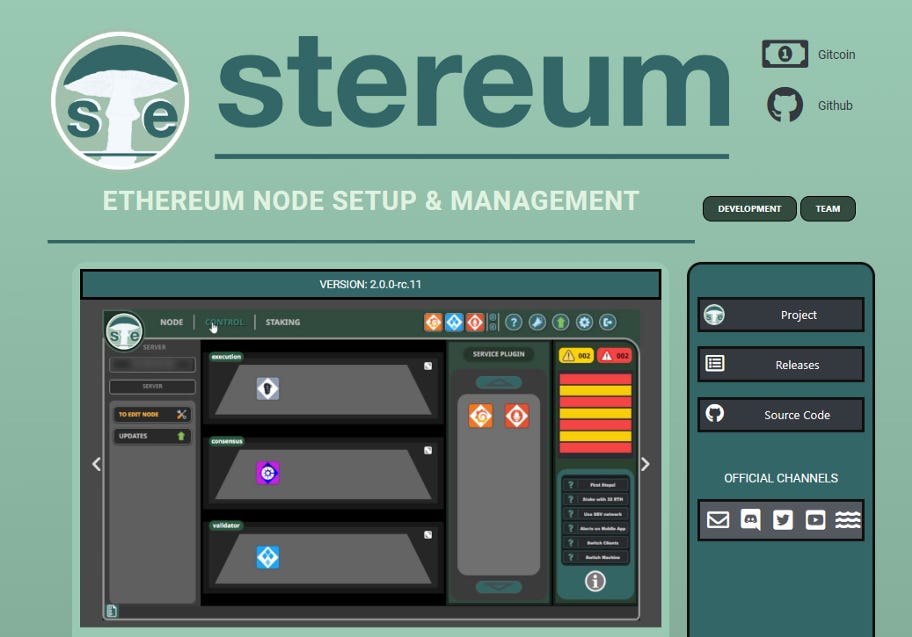Author: @0xMavWisdom
SSV.Network DAO recently launched a $50 million ecosystem fund to support the development of applications based on Distributed Validator Technology(DVT). The technology is a key component of Ethereum co-founder Vitalik Buterin’s roadmap for decentralising Ethereum, and SSV.Network hopes to use the funding to further consolidate the DVT as the key Ethereum infrastructure.
SSV.Network is a fully decentralised open source Ethereum stake protocol developed with the participation of Obol, a secret shared verifier network for Ethereum, and Blox, an unmanaged Ethereum 2.0 stake protocol. SSV enables a secure and robust method of splitting verifier keys between untrusted nodes or operators in a secure manner while maintaining distributed control and activity of Ethernet verifiers for ETH staking. SSV.Network is currently in beta phase. The recently released Shifu V2 version of SSV.Network will allow upgraded nodes to formally participate in all responsibilities used in the Ethereum consensus.
SSV is a native Token of SSV.Network, with a total of 1100w and essentially full circulation. The main uses of the Token are (1) Payments: Operators operate on behalf of stakes to verify that the validator receives SSV rewards (2) Governance: Submitting votes and voting on DAO decisions (3) Donations: Helping to fund developers and contributors who develop the network.
Operators, partners and funding recipients form the basic ecosystem of SSV, with over 20 projects currently being built on top of the DVT.
Staking Pool: The Staking Pool model of SSV.Network is mostly an integrated protocol, and there are no native Staking pool projects among the officially certified projects. Staking pools that are already under construction on SSV.Networks, such as Swell Network, ANKR, Spectrum, Steader, etc., have already introduced the ability to stake on SSV.Networks. Chainup, Shard Labs, Moonstake, Infinite Lux, 01Node, Onestar, Blockscape, tardust and others have not yet launched or will soon launch staking on SSV.Network.
Staking Services
Blox staking: Blox is an unmanaged ETH staking platform that claims to be the first unmanaged staking solution for Ethereum, with the native Token being CDT, launched in two phases. The team previously built and operated Blox Finance, and with funding from the Ethereum Foundation, Blox is developing an SSV node for Ethereum stakes. Users need to have 32 ETH and a cloud account created by the user to make a Blox stake, and the staker pays a monthly fee to the cloud service.
XHash: An uncustodied enterprise stake provider on SSV that allows users to stake assets in an uncustodied form. XHash eventually charges nearly 9% of the stake proceeds as a fee and currently has over 1,100 verifiers and over 35,000 ETH staked on XHash.
Forbole: Multi-chain stake provider, official SSV funded project, not yet live on SSV.Network stake.
CryptoManufaktur: Founded in 2020, the company provided various price feeds in the Chainlink ecosystem, before joining the Ethereum ecosystem building, working with the Ethereum Foundation to provide testing solutions for beacon chains and partnering with Blox on their DV (Distributed Validator) project, and is currently active in the Prater test network.
Suspected RUG: 0neinfra
Observability & tooling
DragonStake: one of the SSV funded projects, the team is focused on building blockchain security and operating validators for different proof-of-interest networks, while the SSV.Network stake feature is still in testing and is not yet live.
Hal: Hal is Web3’s messaging application that currently has over 20,000 users. Users can use the app to query and monitor data from multiple blockchain networks, including SSV.Network, and be notified in the first instance by their email, Telegram, Discord, Twitter, Slack or Webhook.
FileDrive Labs: SSV funded decentralised storage project that aims to enable everyone to benefit from distributed storage and build high-performance, user-friendly and scalable storage infrastructures and applications.
Operator Node Consolidation
Stereum: SSV funded tool for managing the setup and maintenance of Ethereum nodes that users can install and setup via the Ethereum Goerli test network or the main Ethereum network while maintaining user privacy.
SSV.Network dominates the network with integrated protocols, which may be related to the fact that SSV itself is not aimed directly at C-users and serves more stake providers, node operators and centralised exchanges. However, another major strength of SSV. Network is its expertise in working with decentralised autonomous organisations. The DAO Partner Program, launched at the end of 2021, has already attracted Digital Currency Grup, Coinbase, OKEX Ventures, NGC Ventures, Allnodes, RockX, AMBER, Skillz and many others. SSV.Network provides a service equivalent to outsourcing, helping them to reduce the cost of using their infrastructure when staking.
As a decentralised stake infrastructure enjoying the dividends of the ETH 2.0 stake track, SSV.Network is rightly built with stakes in mind, but it does not sell itself on taking deposits from users, instead moving to serve as an infrastructure for verifiers, a model that could be extended to other POS chains in the future.
Reference:
https://cointelegraph.com/news/ssv-launches-50m-ecosystem-fund-to-support-eth-staking-tech
https://abmedia.io/20220111-ssv-network-non-custody-staking-protocol
Follow us
Twitter: https://twitter.com/WuBlockchain
Telegram: https://t.me/wublockchainenglish









Soon: $LSDETH diversified LSD 'basket' token w/automated harvesting of intrinsic/extrinsic yield. Insured against slashing. Dominant LSD (Lido) capped, rebalance algos skewed -> smaller DVT networks (promoting decentralisation). Pledge/hedge-able -> for DAOs/retail/Tradfi. WDYT?
PowerPool will eventually deploy diversified LSD baskets on all these EVM POS chains, supported by PowerAgent automated rebalancing and harvesting of extrinsic yield on each chain. Also 'blended' pool-of-pool baskets for TradFI institutions.
#powerpool #poweragent